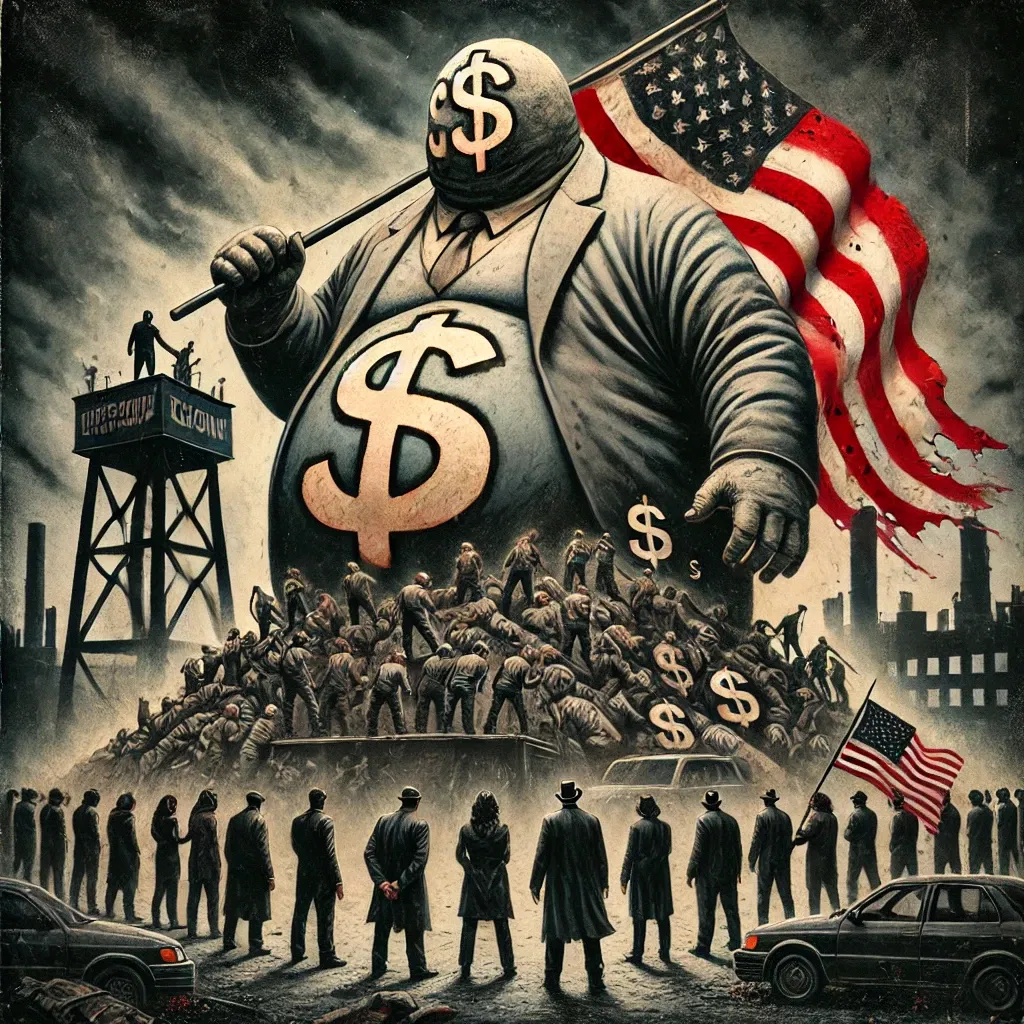In today’s economic landscape, a silent war rages between corporate interests and worker rights. At the heart of this conflict lies a powerful force: corporate greed. But how exactly does this greed fuel the anti-union movement, and what are its consequences for American workers and society at large? Let’s dive deep into this complex issue.
The Anatomy of Corporate Greed
What is Corporate Greed?
Corporate greed refers to the relentless pursuit of profit at the expense of worker welfare, societal benefit, and often, ethical considerations. It’s characterized by:
- Prioritizing shareholder value above all else
- Excessive executive compensation
- Cost-cutting measures that disproportionately affect workers
- Resistance to fair labor practices and unionization
The Anti-Union Crusade: Greed’s Frontline
Corporate America’s fight against unions is deeply rooted in the desire to maximize profits. Here’s how it plays out:
- Union Busting: Companies spend millions on anti-union consultants and campaigns.
- Political Influence: Lobbying for laws that weaken union power.
- Misinformation: Spreading fear about union “corruption” or “inefficiency.”
- Outsourcing Threats: Using the specter of job loss to discourage unionization.
The Stark Reality: Executive Pay vs. Worker Wages
The disparity between corporate officers’ earnings and frontline employees is staggering:
- CEO Pay Ratio: In 2020, CEOs of the top 350 firms in the U.S. made 351 times as much as a typical worker.
- Bonus Bonanza: While workers fight for livable wages, executives often receive bonuses larger than an average worker’s lifetime earnings.
- Stock Options: Many executives receive substantial stock options, further widening the wealth gap.
The Widening Wealth Chasm: A Decades-Long Trend
The wealth gap in America has been growing at an alarming rate:
- 1965 vs. Today: The CEO-to-worker compensation ratio has grown 1,322% since 1978.
- Middle Class Squeeze: While productivity has increased 61.8% since 1979, hourly pay has only grown 17.5%.
- Top 1% Takeover: The share of wealth owned by the top 1% has grown from 23% in 1989 to 32% in 2018.
How Corporations Justify Their Greed
Corporations often use several arguments to justify their anti-union stance and wealth concentration:
- “Market Forces”: Claiming high executive pay is necessary to attract top talent.
- “Trickle-Down Economics”: Arguing that corporate success benefits all, despite evidence to the contrary.
- “Shareholder Primacy”: Prioritizing shareholder returns over worker welfare.
- “Global Competition”: Using international competition as an excuse for cost-cutting and union-busting.
- “Job Creation”: Suggesting that high profits lead to more jobs, even as wages stagnate.
The Real Cost of Corporate Greed
The consequences of unchecked corporate greed extend far beyond balance sheets:
- Income Inequality: Widening the gap between the rich and poor.
- Economic Instability: Concentrating wealth in fewer hands, making the economy more volatile.
- Social Unrest: Fueling dissatisfaction and political polarization.
- Health Disparities: Lower-income workers often face poorer health outcomes due to stress and lack of access to healthcare.
Unions: A Counterforce to Corporate Greed
Unions play a crucial role in balancing the scales:
- Collective Bargaining: Giving workers a voice in negotiations.
- Wage Protection: Union workers earn on average 11.2% more than their non-union counterparts.
- Benefits Advocacy: Fighting for better healthcare, retirement plans, and work-life balance.
- Legal Support: Providing resources to combat workplace injustices.
The Path Forward: Balancing Profit and People
Addressing corporate greed and supporting unions is not just about fairness—it’s about creating a sustainable, prosperous economy for all. Here’s what can be done:
- Policy Reform: Implementing laws that protect worker rights and limit excessive executive compensation.
- Corporate Responsibility: Encouraging businesses to prioritize stakeholder value over shareholder primacy.
- Union Support: Recognizing the vital role unions play in maintaining a healthy work environment and economy.
- Public Awareness: Educating the public about the realities of wealth disparity and the importance of worker rights.
Conclusion: A Call for Economic Justice
The battle against corporate greed and for worker rights is one of the defining issues of our time. By understanding the mechanics of this struggle and supporting measures that promote economic justice, we can work towards a more equitable and prosperous society for all.
As consumers, workers, and citizens, we have the power to demand change. It’s time to recognize that true economic success is measured not just in profits, but in the well-being of all members of society.
